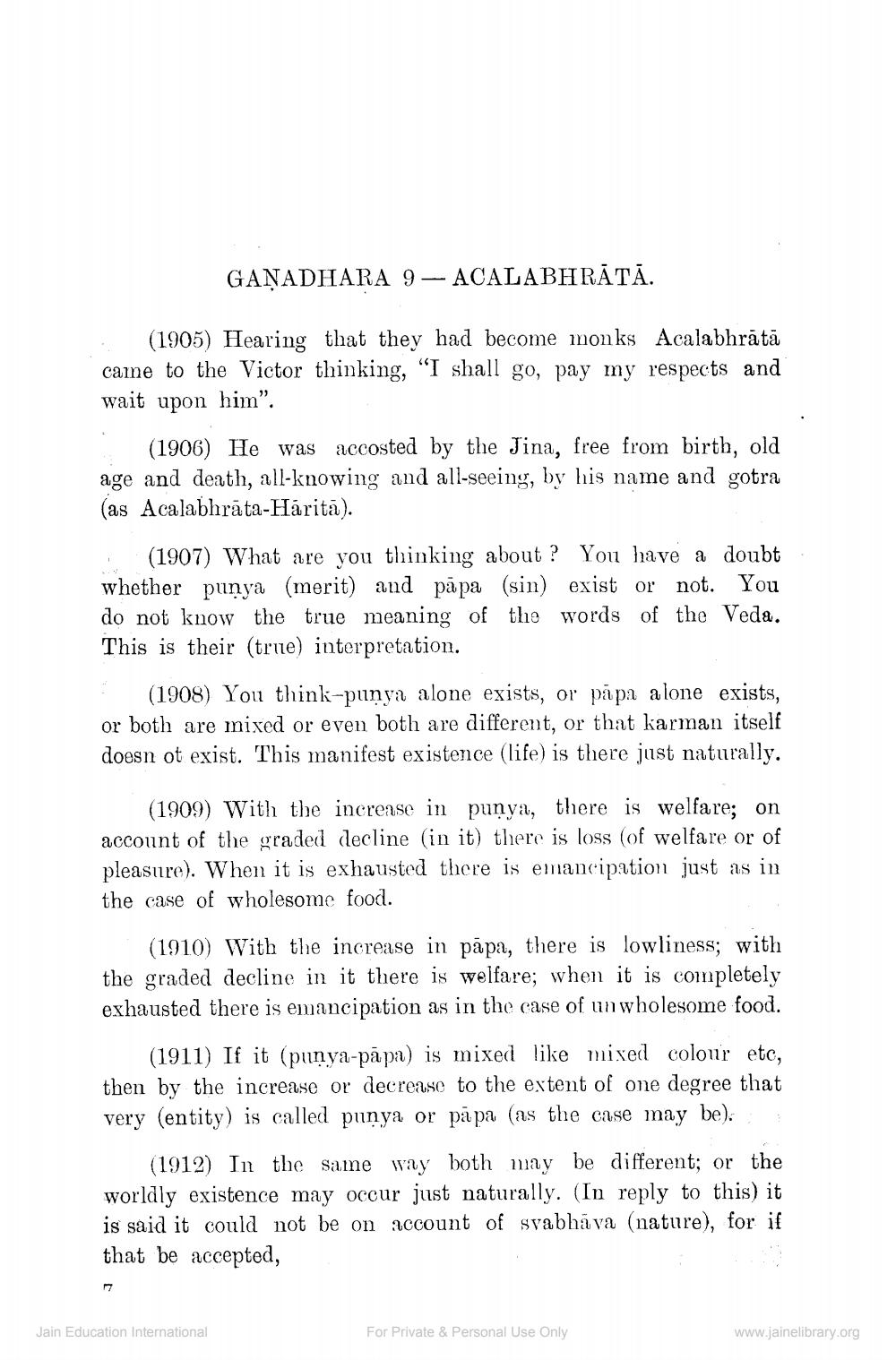________________
GAŅADHARA 9 - ACALABHRĀTĀ.
(1905) Hearing that they had become monks Acalabhrātā came to the Victor thinking, "I shall go, pay my respects and wait upon him”.
(1906) He was accosted by the Jina, free from birth, old age and death, all-knowing and all-seeing, by his name and gotra (as Acalabhrāta-Haritā).
i (1907) What are you thinking about ? You have a doubt whether punya (merit) and pāpa (sin) exist or not. You do not know the true meaning of the words of the Veda. This is their (true) interpretation.
(1908) You think-punya alone exists, or papa alone exists, or both are mixed or even both are different, or that karman itself doesn ot exist. This manifest existence (life) is there just naturally,
(1909) With the increase in punya, there is welfare; on account of the graded decline (in it) there is loss (of welfare or of pleasure). When it is exhausted there is emancipation just as in the case of wholesome food.
(1910) With the increase in păpa, there is lowliness; with the graded decline in it there is welfare; when it is completely exhausted there is emancipation as in the case of un wholesome food.
(1911) If it (punya-pāpa) is mixed like mixed colour etc, then by the increase or decrease to the extent of one degree that very (entity) is called punya or papa (as the case may be).
(1912) In the same way both may be different; or the worldly existence may occur just naturally. (In reply to this) it is said it could not be on account of svabhāva (nature), for if that be accepted,
Jain Education International
For Private & Personal Use Only
www.jainelibrary.org




